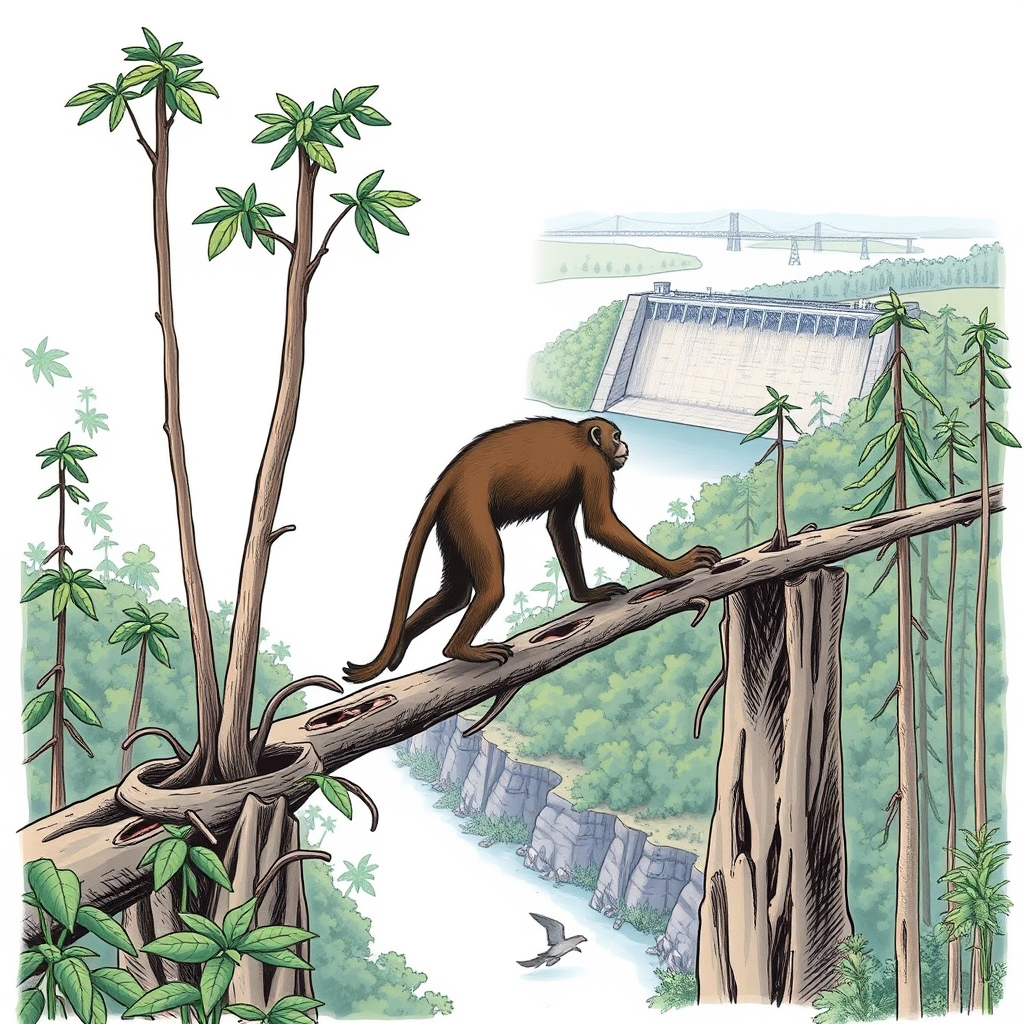Amazon Monkeys Trapped: A Race Against Time

In the heart of Brazil’s rapidly diminishing Amazon rainforest, a small farmer’s encounter with an endangered monkey has sparked a grassroots effort to preserve a critically threatened species. Armando Schlindwein, a 62-year-old resident of Sinop municipality in Mato Grosso state, first spotted a Groves’ Titi monkey – locally known as zogue-zogue – venturing onto his farmhouse roof in 2024. This sighting, a poignant symbol of the monkey’s shrinking habitat, ignited a personal mission to create a safe passage for the primate family.
The Groves’ Titi, a house cat-sized monkey found exclusively in Mato Grosso, is facing a dire situation. Listed as one of the world’s 25 most endangered primates, the species has already lost 42% of its forest habitat, a figure projected to reach a catastrophic 86% within a quarter-century if deforestation continues unabated. With a population estimated at just a few thousand, the monkeys are increasingly trapped in fragmented forests, unable to migrate and reproduce successfully.
Inspired by the desperate situation, Schlindwein partnered with NGOs like the Ecotono Institute and the Movement of People Affected by Dams (MAR) to launch a reforestation project. Last year, they planted seeds for 47 native tree species on a deforested hectare of Schlindwein’s land, hoping to triple the available habitat for the local monkey family – consisting of four adults and an infant – within five to seven years.
The initiative highlights a crucial point: while large-scale conservation efforts are vital, impactful change can also begin at the individual level. Schlindwein’s dedication demonstrates that local communities can be powerful agents in protecting biodiversity. However, the challenges are immense. Deforestation, driven primarily by agricultural expansion for crops like soybeans, continues to ravage the Amazon.
Adding to the threat, the monkey family’s territory is further constricted by the Sinop Hydroelectric Plant. The plant’s reservoir has created a significant barrier, effectively cutting off access to a portion of their habitat. Environmentalists also accuse the plant’s operator, Sinop Energia (partly owned by French energy giant EDF), of exacerbating the problem by leaving felled trees to rot in the river, contributing to forest fires and harming aquatic life. Sinop Energia maintains it meets all legal and environmental requirements and conducts monitoring programs.
The situation underscores the complex interplay between development, conservation, and the livelihoods of local communities. While economic progress is important, it cannot come at the expense of irreplaceable ecosystems and the species they harbor. The Groves’ Titi’s plight serves as a stark warning: unless urgent action is taken to address deforestation and mitigate the impacts of infrastructure projects, this unique primate – and countless other species – could face extinction. The success of Schlindwein’s small-scale reforestation effort offers a glimmer of hope, but it’s a reminder that a much broader, more concerted effort is needed to save the Amazon’s bushy-bearded monkeys and preserve the rainforest for future generations.